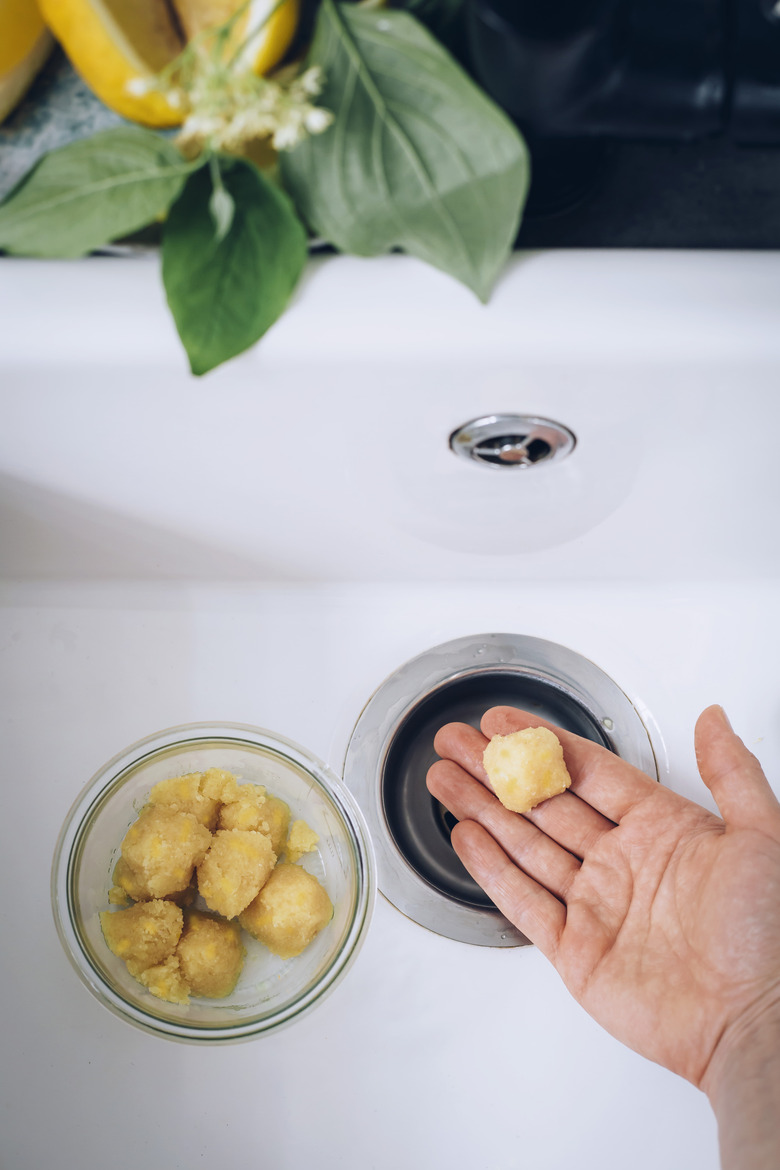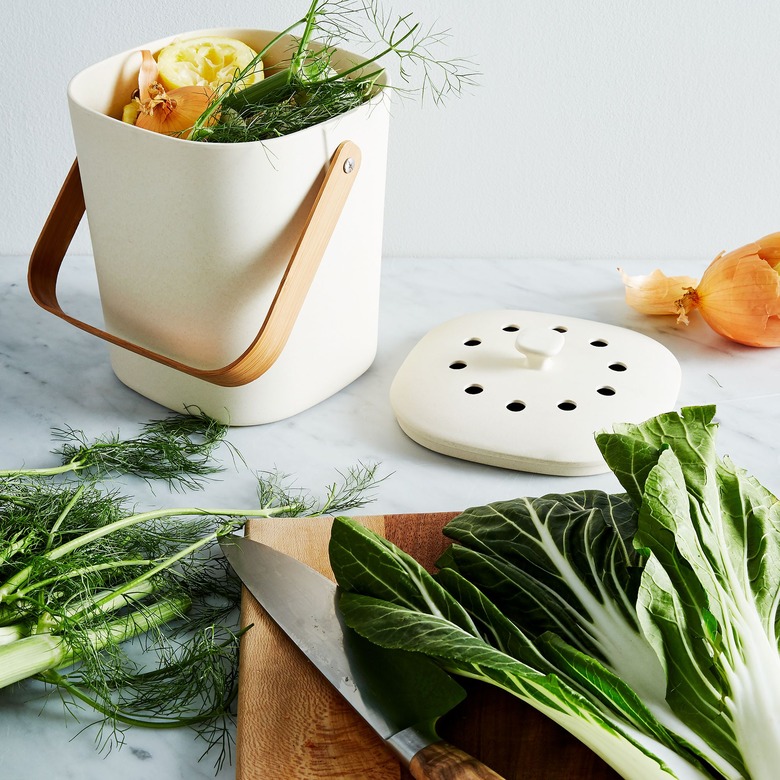Disposal Wars: What Can You REALLY Put Down The Disposal?
Like couples who disagree about the right way to pack a dishwasher, my husband and I are at odds, regularly, about what can and can't go down the kitchen disposal. He's of the opinion that the disposal is a tool of last resort, while I can't really understand why we'd pay nearly $200 for something we can't use, like, every day, for every meal. To me, the sound of the disposal signals that we're finally done cleaning the kitchen. It's all down the drain — literally. Hallelujah! Amen!
Well, I did some research. Turns out, we're both a little right — and both a little wrong, depending on how you look at the situation.
Where we agree.
Where we agree.
Some things are clearly no-nos — like bones, pits, shells, dirty oils, and bacon grease (though I learned the lesson about grease the hard way). And obviously anything that's not food. We've ruined enough vintage silverware to know that disposals and teaspoons do not mix. And I only put broken glass down the disposal that one time, I promise.
Where I’m clearly right and he's wrong.
Where I'm clearly right and he's wrong.
Disposals and these items are on good terms ...
Citrus rinds. Lemon wedges are basically made for the disposal — not only are they small, they help keep your drain smelling fresh. I will admit, however, that old limes can pose a problem — at which point you just reach into the drain and pluck out the offending citrus. No biggie.
Most leftover, cooked food scraps from your dinner plate. If we can grind it with our teeth, the disposal can also do its thing with little to worry about. Yes, even meat. (But raw meat is a no-no).
Scraps from most fruits and veggies. Listen, long strips of carrot skin, the disposal is where you belong.
Where, ahem, he has a point.
Where, ahem, he has a point.
Disposals and these items are a no ...
Eggshells. I used to argue hard in favor of eggshells down the drain — they crush so easily! What's the big deal?! But since eggshells don't dissolve, they can lead to buildup — and the dreaded clog.
Coffee grounds. I mean, how does one clean their French press without a garbage disposal? But the hubs was not wrong — coffee grounds have a tendency to settle in pipes. Rice. We eat a lot of rice in our household — so this one was pretty controversial. Google has confirmed that rice (and, likewise, pasta) can swell with water and block the drain. (Although, if this happens to you, do not fret.)
Things I didn't think about, really, but now I'm glad to know.
Things I didn't think about, really, but now I'm glad to know.
Per the reliable experts at This Old House, you can safely put most food items down a kitchen disposal that's working well — just avoid bones, meat, pits, and the all-encompassing "stringy stuff."
I must've intuited what "stringy stuff" was because I never even considered putting things like corn husks, artichoke leaves, onion skins, or even celery down the drain.
When in doubt, compost.
When in doubt, compost.
While I tend to treat the disposal as a grind-all, and the husband treats it like a precious safety valve only to be used in emergencies, we actually agree on one thing — almost everything in this list can go into the compost. Instead of potentially clogging pipes or heading to the water treatment plant, our kitchen and table scraps (minus things like meat, dairy and animal fats) can become nutrient-rich gardening material. And who can argue with that?

